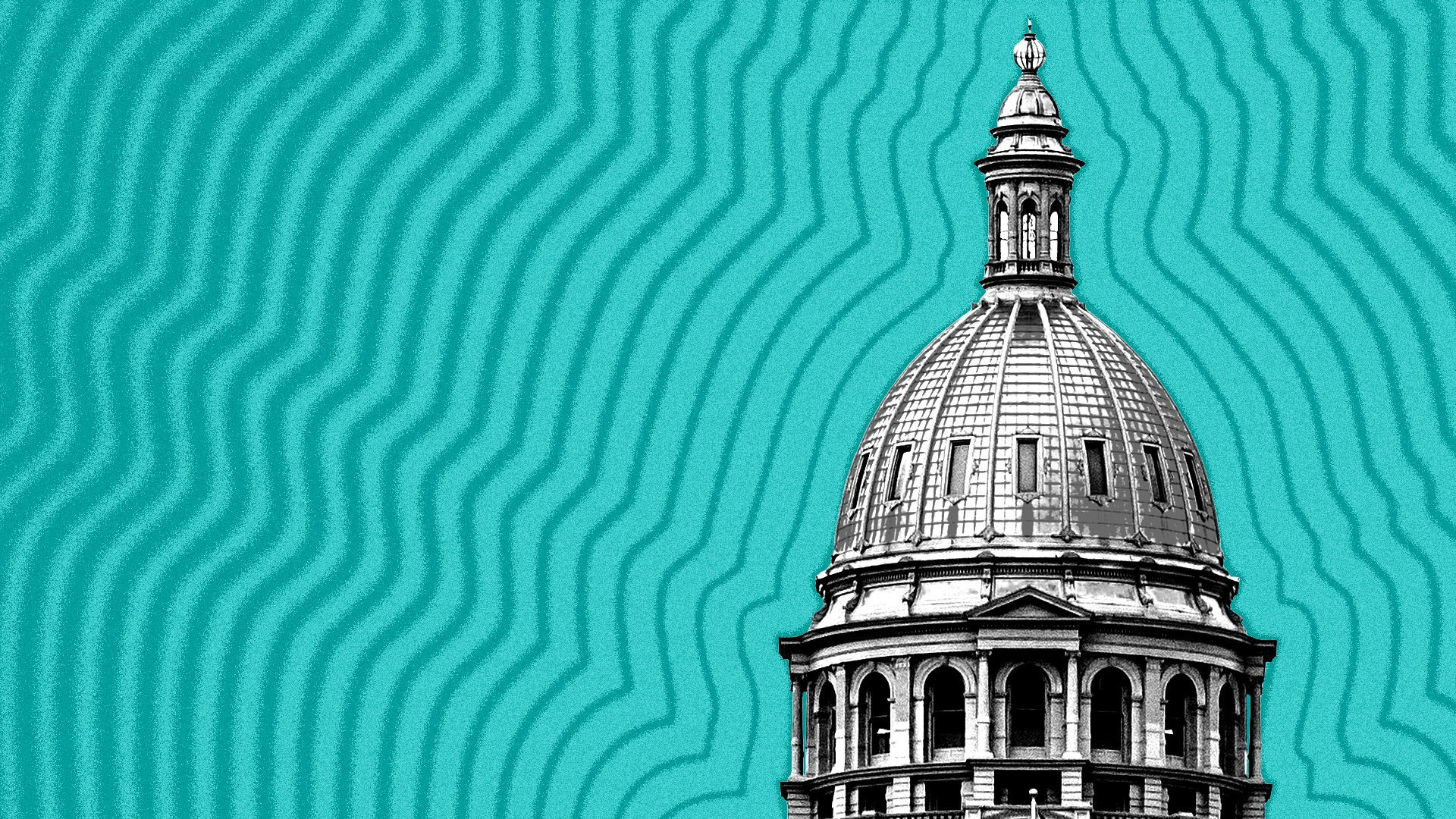Colorado must issue additional taxpayer rebates, new report shows
Add Axios as your preferred source to
see more of our stories on Google.

Photo Illustration: Brendan Lynch/Axios. Photo: DivInc
Colorado's tax collections through June reached such historic levels that the state government must issue another rebate.
State of play: The state's discretionary revenue from tax collections jumped 23.7% in the just-finished 2022 fiscal year — the largest general fund increase since at least 1975, if not ever, according to a new report from legislative economists.
The increase surged beyond the revenue caps in the Taxpayer's Bill of Rights, meaning the state will need to issue even larger refunds.
- The first checks came in August — amounting to $750 a person — but now the state must prepare to refund another $816 million when most residents file their 2022 taxes next spring.
- That will amount to $160 to $506 in refunds, based on income with top earners receiving more.
What they're saying: "Those amounts are staggering," Greg Sobetski, the chief legislative economist, told lawmakers Thursday. "That's what happens when you have a three-plus billion TABOR surplus and have to give it back to taxpayers."
BFD: In the current fiscal year and two future ones, taxpayer refunds could continue to increase. The legislative forecasts show the state must return a total of $8.8 billion in rebates over that period.
Yes, but: The estimates would decrease if voters approve measures on this year's ballot to curtail TABOR refunds or if the state's economy enters a recession.
- Legislative economists cautioned that the economy is in a "precarious situation" with rising interest rates, and as the risk of a near-term recession "continues to escalate."
The other side: Gov. Jared Polis' analysts are less optimistic about the economy's direction down the line. In their latest forecast, his budget office is suggesting smaller TABOR refunds in future years, totaling $3.3 billion.
The big picture: TABOR not only sets refund amounts, but establishes the limits lawmakers can spend in the annual budget process.
- The governor's office expects discretionary spending to decline 6.1% in the current fiscal year, while legislative economists anticipate it grows 1.4%. Both forecast more flat growth for the 2023-24 fiscal year.
